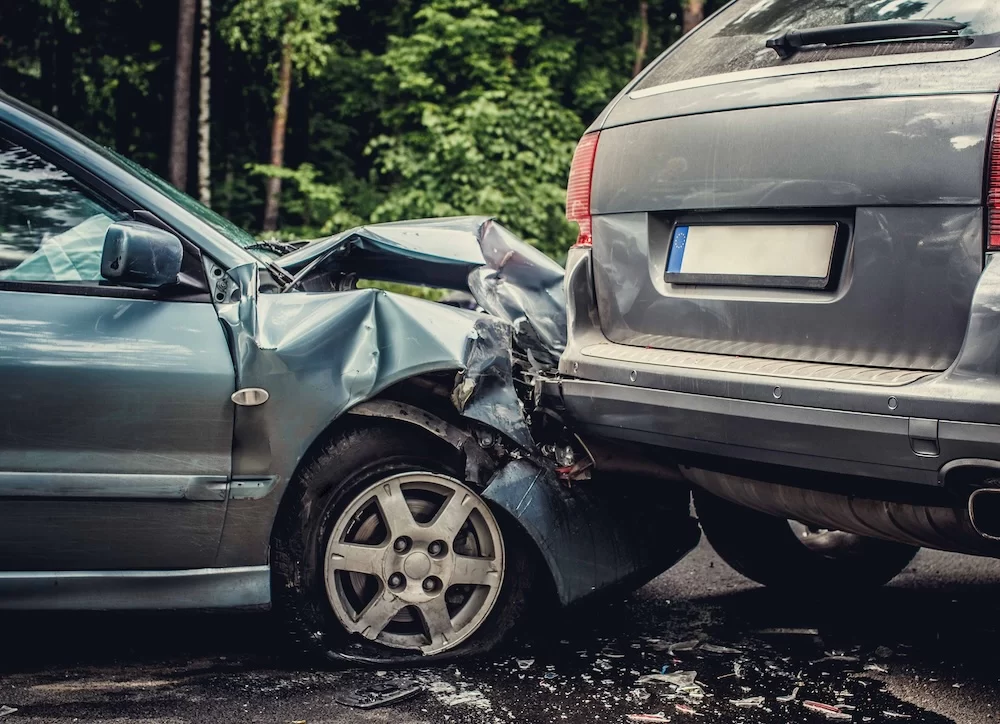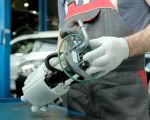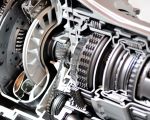Comprehensive Guide to Accident Recovery: What You Need to Know
Understanding the Accident Recovery Process
Accidents can happen when we least expect them, leading to physical injuries, emotional trauma, and lifestyle disruptions. Whether it's a car accident, slip and fall, or workplace injury, the recovery process can be long and complicated. Understanding the stages of recovery and how to approach them is essential for a successful healing journey.
Recovery is not just about the physical healing of your body. It involves multiple aspects: physical rehabilitation, emotional healing, and regaining mental clarity. Each person’s recovery timeline is different, but having a solid understanding of what to expect can help you feel more in control and prepared. Let's dive into the phases of accident recovery and how you can navigate them effectively.
Physical Recovery: Healing the Body
One of the most important aspects of accident recovery is physical healing. Depending on the severity of the injury, this phase may involve surgeries, medications, physical therapy, and other treatments. For example, if you’ve experienced a broken bone, doctors may perform surgery to realign the bone and ensure proper healing. Once the bone has been set, physical therapy will help regain strength and flexibility.
In cases of soft tissue injuries, such as sprains or strains, the body may require rest, ice, compression, and elevation (R.I.C.E.), alongside anti-inflammatory medications. It’s important to listen to your body and not rush the process. Overexertion can lead to re-injury, which can delay recovery. Patience and consistency in following prescribed exercises and treatments will improve the chances of full recovery.
For those recovering from more serious injuries like spinal cord injuries or traumatic brain injuries, the road to physical recovery can be much longer. Specialized care, such as occupational therapy or neurological rehabilitation, is crucial for improving functional abilities. Even if the recovery seems slow, every bit of progress counts. Having a dedicated healthcare team will make all the difference in ensuring that your physical recovery stays on track.
Emotional Recovery: Healing the Mind
While the physical aspects of recovery are often more visible, emotional recovery can be equally, if not more, important. Accidents can lead to feelings of anxiety, depression, and post-traumatic stress disorder (PTSD). These emotional challenges are not only common but are also completely natural following a traumatic event.
For example, a person who was in a serious car accident may find themselves constantly reliving the event, experiencing nightmares or flashbacks, or feeling overly anxious when driving. These reactions can be part of a larger emotional recovery process, and it's vital to address them early on. Professional counseling or therapy can be highly beneficial during this stage of recovery. Cognitive-behavioral therapy (CBT) is often used to help individuals process traumatic experiences and develop healthier coping mechanisms.
Support groups, whether in person or online, can also offer emotional relief. Sharing your experience with others who have gone through similar situations can help normalize your feelings and provide valuable insights into managing the emotional impact of your recovery.
Regaining Mental Clarity: The Cognitive Aspect
Another critical area of recovery is restoring your mental clarity. Head injuries, such as concussions, can impair cognitive functions like memory, focus, and decision-making. In some cases, it can take weeks or months for the brain to heal and for cognitive abilities to return to normal.
Patients recovering from brain injuries should follow their doctor's guidance carefully, as returning to regular activities too soon can worsen cognitive dysfunction. Rest, both mental and physical, is essential during this period. Mental exercises and brain training can help expedite the recovery process and improve cognitive functions.
Additionally, practicing mindfulness and stress-relieving techniques, such as meditation and deep breathing, can help clear the mind, reduce anxiety, and enhance overall mental well-being during recovery.
Real-Life Case Study: Sarah's Recovery Journey
Consider the story of Sarah, a 35-year-old woman who was involved in a car accident. Sarah sustained a broken leg and multiple contusions, but the physical injuries were not her only challenge. In the aftermath, she faced overwhelming anxiety and depression, struggling with the trauma of the crash and the limitations of her body as she recovered.
During the initial recovery phase, Sarah focused on healing her physical injuries with the help of doctors and physical therapists. However, it wasn’t until she sought therapy for her emotional trauma that she truly began to heal. By working with a psychologist, Sarah learned how to manage her anxiety and developed coping strategies for the post-traumatic stress she experienced. Over time, her recovery became more holistic as she addressed both her physical and emotional health.
Today, Sarah is back on her feet, physically stronger and emotionally resilient. Her story demonstrates that recovery is not just about physical healing—it’s a multifaceted journey that involves addressing the mind and emotions as well as the body.
Getting Help: Finding the Right Resources for Recovery
Getting the right help during your recovery is essential. From finding a reputable medical team to securing physical therapy services, knowing where to turn can make your recovery journey smoother. Many healthcare providers, hospitals, and rehabilitation centers offer comprehensive recovery programs designed to address the physical, emotional, and cognitive needs of accident survivors.
If you're unsure where to start, you can visit platforms like [Rescue & Towing](#) to connect with the best towing companies or services available, should your recovery require additional support for transportation or moving your vehicle after an accident. Moreover, it’s important to work with a healthcare provider who specializes in accident recovery and can coordinate a plan of care tailored to your needs.
Additionally, having access to rehabilitation services such as physiotherapists, occupational therapists, and counselors is crucial. These professionals will guide you through every step of the recovery process and help you regain independence as you heal.





























